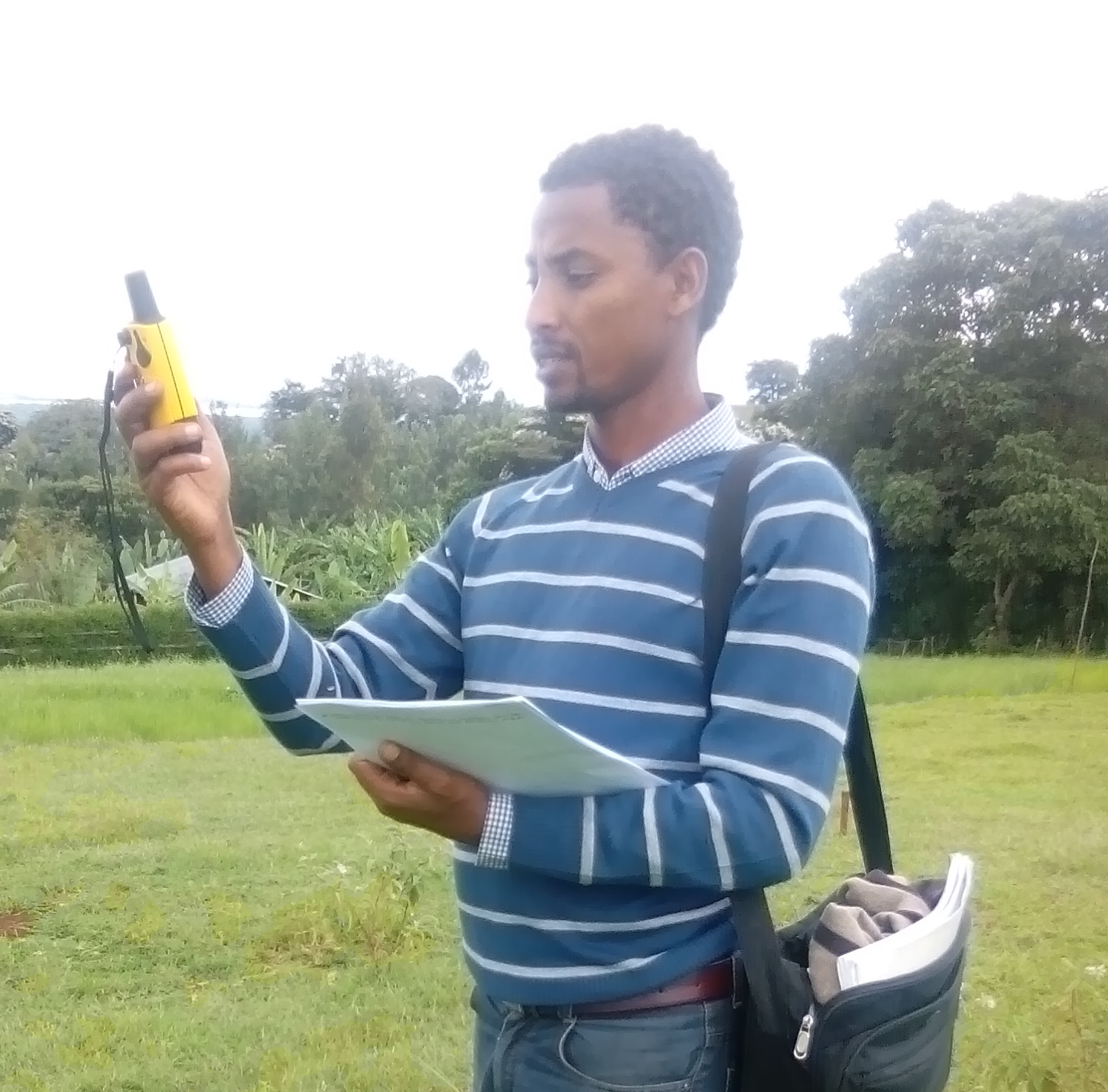Understanding agro-climatic conditions favoring post-harvest loss in maize
 Mr. Shiferaw Diriba Danno from Jimma University, Ethiopia, successfully finalized his MSc thesis, focusing on the relations between agroclimatic and storage conditions that cause post-harvest losses.
Mr. Shiferaw Diriba Danno from Jimma University, Ethiopia, successfully finalized his MSc thesis, focusing on the relations between agroclimatic and storage conditions that cause post-harvest losses.
In the south-western parts of Ethiopia, maize is a staple food crop, besides other cereals, e.g. sorghum and teff. Maize is grown at different altitudes, resulting in a wide range of temperature and humidity conditions under which maize grains are harvested and stored. In his MSc research, Mr. Diriba combined household surveys with personal observations of storage structures that were used by farmers and traders in the study area with measurements of agro-climatic conditions inside and outside the grain stores.
His findings suggest that with few exceptions, the storage facilities used could not ensure safe conditions for maize, which can easily be affected by fungal diseases rendering the grain inedible or even dangerously poisonous. The author suggests that clustering farms with similar conditions could help to develop locally-based technological solutions for enhancing storage conditions and reducing food losses in the study area.






